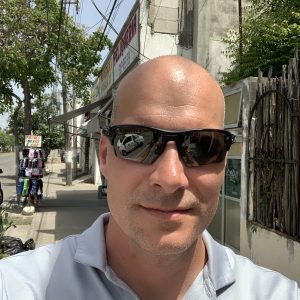“Substance use among high school students decreased for some substances from 2011 to 2021,” reported the latest Youth Risk Behavior Survey published by the US Centers for Disease Control and Prevention (CDC) in February. “However, many students still used substances and the lack of progress in adolescents’ use of some substances is concerning. The percentage of students who used electronic vapor products did not change from 2015 to 2021 and the percentage of students who currently misused prescription opioids did not change from 2019 to 2021.”
In 2021, nearly a quarter of high school students drank alcohol during the past 30 days with female students more likely than male students to currently misuse alcohol, according to the CDC data. Sixteen percent of high school students used marijuana during the past 30 days that year and again girls were more likely than boys to currently use marijuana.
Many teenagers require treatment to avoid falling into a trap of progressively escalating substance misuse leading to full-blown addiction and other serious health problems. The negative impact of substance misuse on scholastic achievements will possibly also further accelerate the use of drugs and alcohol.
The hybrid model at Turning Winds utilizes the best elements of care from wilderness therapy, therapeutic boarding schools, and inpatient treatment to create a one-of-a-kind residential treatment center to help kids with mental health and substance use issues.
Our teen clients undergo a comprehensive evaluation to determine what services they require. Our medical, clinical, and operations team members will work with parents, their teens, and each other to determine a personalized program that gets to the heart of the children’s issues and help them navigate their healing process.
Frequently, that also involves addressing substance misuse issues. As the Youth Risk Behavior Survey shows, drug and alcohol misuse is widespread among America’s teenage population—especially among teenagers with mental health issues such as anxiety, trauma, and depression.
Tara Stever, LAC, has made a huge impact on many of our students as a drug and addiction counselor, leading group therapy sessions and helping them overcome their destructive behaviors. The starting point for Stever is typically exploring why the teen client started misusing drugs and alcohol.
“A lot of kids say something like, ‘because it was fun and stuff,’ but the reality is we use substances to hide something. For most of us, it’s about hiding emotions. We don’t want to feel those emotions or we don’t want to face some other trauma in life. And so we cover it up and hide it with substance use.”
Healing from a substance use disorder or other addictions often involves acknowledging the reasons behind the pathological behavior instead of suppressing painful emotions and denying the attempts to self-medicate them.
“None of us like being vulnerable,” says Stever. “But the first thing that we have to do is acknowledge that it’s okay—that you are not weak because you’re asking for help. One of the hardest things to remember is that it takes a stronger person to admit that we need help than it is to hide it and say, ‘No, everything’s fine.’ Because we’re human beings, we think if we ask for help, it makes us incompetent. But everybody needs help doing something. And you can’t do it alone. You need that support. And so for me, it’s about approaching them and helping them realize that you actually become a stronger person the day you are able to say, ‘Hey, I need your help.’”
Any mild to moderate addiction that a child may have can be treated at our residential program—including video game addictions, computer addictions, pornography, drug and alcohol addictions, cutting, and sexual addictions. Teenage clients with these kinds of addictive behaviors have been able to improve in our care.
“Turning Winds is a place for growth because you realize that you are not alone,” says Stever. “Every single human being on the face of this earth has strengths and flaws. We all have defects. It’s important to understand that and recognize that it’s okay to have them, and say ‘I will use my strengths to build on my weaknesses.’”
Treatment services at Turning Winds can be used in a variety of situations. It can be used in the entry-level treatment of clients. It can also be used as a step-up from a less intensive level of care, or as a step-down from a more intensive level of care, such as inpatient treatment.
The focus is on creating a stable pattern of living through education, process groups, and individualized treatment planning and review. Our mission is to rescue teens from crisis situations, renew their belief in their own potential, reunite them with their families, and launch them on a sustainable path to success. If your teen is struggling with mental health or substance use issues, speak with our admissions specialists today at (800) 845-1380 or email us at [email protected].









